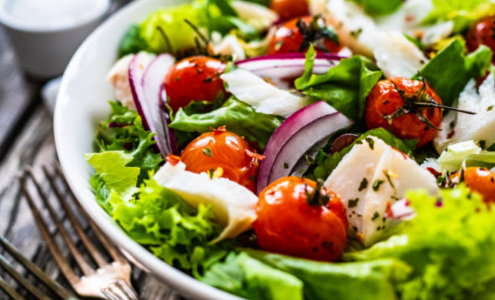Twins Tested Vegan vs. Meat Diets: The Shocking Effects on Your Body Revealed!
By
- Replies 2
When it comes to diet and nutrition, the debate between veganism and meat consumption continues to simmer in households and scientific communities alike. With documentaries like Netflix's 'Cowspiracy' stirring the pot since 2015, many Australians wonder which dietary path leads to better health outcomes. In a fascinating twist, researchers have now thrown new fuel on this fiery discussion by conducting a study with 21 pairs of identical twins who embarked on a journey of dietary divergence: one twin going vegan, the other sticking to a meat-inclusive diet, for eight weeks.
The study, which was published in the journal BMC Medicine, aimed to eliminate as many variables as possible to get a clear picture of how these diets affect the body. The participants, with an average age of 40 and a BMI of 26, were provided with prepared meals for the first half of the study, ensuring consistency in their nutritional intake. They were left to their own devices for the latter four weeks, cooking meals that adhered to their assigned diets. It's worth noting that the majority of participants were women, making up 77 per cent of the study group.
The results were eye-opening. The vegan group not only lost an average of 2 kilograms but also showed a decrease in the estimates of their biological age. This suggests that a plant-based diet could slow down certain aspects of the aging process. Professor Christopher Gardner of Stanford University, California, observed decreases in the ages of the heart, hormone, liver, and inflammatory and metabolic systems among the vegan participants. These findings could be a beacon for those seeking to improve their health and longevity through dietary choices.
However, the study's revelations are not a one-size-fits-all triumph for veganism. Tom Sanders, professor emeritus of Nutrition and Dietetics at King’s College London, who was not involved in the study, offers a word of caution. He points out that while vegan diets may have favourable effects on health in middle age, such as a lower risk of cardiovascular disease and type 2 diabetes, the picture isn't as rosy for older vegans. Concerns about muscle loss, low bone density, and neurological disorders, which can significantly impact quality of life, are more prevalent in this demographic. Moreover, Sanders highlights that life expectancy does not differ significantly between vegans and those who consume mixed diets.
This study serves as a reminder that the quest for the perfect diet is complex and highly individual. For our members at the Seniors Discount Club, it's crucial to consider not just the short-term benefits of weight loss or the allure of a younger biological age but also the long-term implications of dietary choices on muscle and bone health and neurological function.
As we navigate the golden years, we must consult with healthcare professionals and nutritionists to tailor a diet that supports our individual health needs and lifestyles. Whether you're considering a switch to veganism or are a steadfast omnivore, the key is to focus on balance, variety, and nutrient density to maintain vitality and enjoy life to the fullest.
 We'd love to hear from you, our wise and experienced readers. Have you experimented with vegan or meat-based diets? What impacts have you noticed on your health and well-being? Share your stories in the comments below, and let's continue the conversation about finding the right dietary path for each of us.
We'd love to hear from you, our wise and experienced readers. Have you experimented with vegan or meat-based diets? What impacts have you noticed on your health and well-being? Share your stories in the comments below, and let's continue the conversation about finding the right dietary path for each of us.
The study, which was published in the journal BMC Medicine, aimed to eliminate as many variables as possible to get a clear picture of how these diets affect the body. The participants, with an average age of 40 and a BMI of 26, were provided with prepared meals for the first half of the study, ensuring consistency in their nutritional intake. They were left to their own devices for the latter four weeks, cooking meals that adhered to their assigned diets. It's worth noting that the majority of participants were women, making up 77 per cent of the study group.
The results were eye-opening. The vegan group not only lost an average of 2 kilograms but also showed a decrease in the estimates of their biological age. This suggests that a plant-based diet could slow down certain aspects of the aging process. Professor Christopher Gardner of Stanford University, California, observed decreases in the ages of the heart, hormone, liver, and inflammatory and metabolic systems among the vegan participants. These findings could be a beacon for those seeking to improve their health and longevity through dietary choices.
However, the study's revelations are not a one-size-fits-all triumph for veganism. Tom Sanders, professor emeritus of Nutrition and Dietetics at King’s College London, who was not involved in the study, offers a word of caution. He points out that while vegan diets may have favourable effects on health in middle age, such as a lower risk of cardiovascular disease and type 2 diabetes, the picture isn't as rosy for older vegans. Concerns about muscle loss, low bone density, and neurological disorders, which can significantly impact quality of life, are more prevalent in this demographic. Moreover, Sanders highlights that life expectancy does not differ significantly between vegans and those who consume mixed diets.
This study serves as a reminder that the quest for the perfect diet is complex and highly individual. For our members at the Seniors Discount Club, it's crucial to consider not just the short-term benefits of weight loss or the allure of a younger biological age but also the long-term implications of dietary choices on muscle and bone health and neurological function.
As we navigate the golden years, we must consult with healthcare professionals and nutritionists to tailor a diet that supports our individual health needs and lifestyles. Whether you're considering a switch to veganism or are a steadfast omnivore, the key is to focus on balance, variety, and nutrient density to maintain vitality and enjoy life to the fullest.
Key Takeaways
- Researchers conducted a study with 21 pairs of identical twins, where half went on a vegan diet and the other half consumed a meat diet for eight weeks.
- The twins had meals prepared for them for the first half of the study and made their meals during the second half.
- The study's findings indicated that vegans lost more weight and experienced a decrease in estimates of biological age, including the ages of the heart, hormone, liver, and inflammatory and metabolic systems.
- Despite these findings, an expert not involved in the study suggested that older vegans might face health issues such as muscle loss, low bone density, and neurological disorders, indicating that vegan diets might not lead to differences in life expectancy compared to mixed diets.








